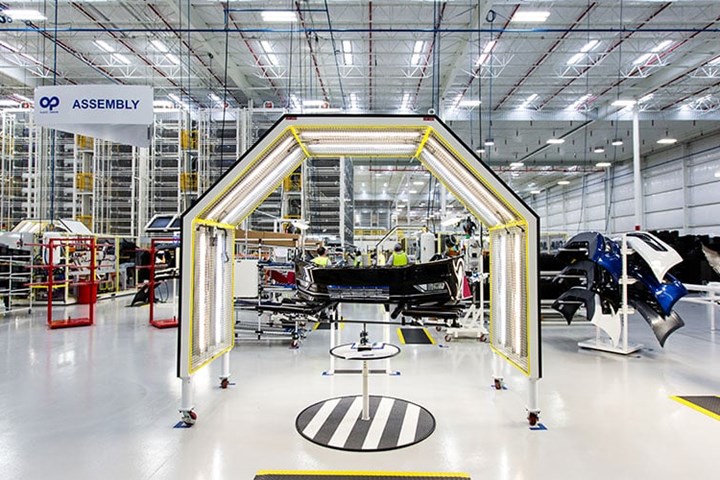Plastic Omnium plans $171 million hydrogen investment in Michigan
French automaker subsidiary is looking at two U.S. sites for storage vessel production and validation that will support 40,000 vehicles/year by 2027.

Photo Credit: Compagnie Plastic Omnium
As originally reported by , a subsidiary of French automotive supplier Compagnie Plastic Omnium (Levallois-Perret) is planning to invest up to $171 million at a pair of sites in Michigan to support a large award from an automaker. Operations are expected to support 40,000 vehicles annually by 2027.
One 20,000-square-foot site on 4357 Baldwin Rd will be used to produce hydrogen storage vessels for the undisclosed vehicle — while not confirmed by the company, it can be assumed that the subsidiary will be using its expertise in producing filament-wound, high-pressure Type IV hydrogen vessels. Leasing of a second, 50,000-square-foot facility is anticipated in order to validate these hydrogen systems for road use, with location still undetermined.
The project is being supported by a $5 million performance-based grant from the Michigan Economic Development Corp. (MEDC) and a 15-year 100% SESA Exemption valued at $2.4 million. According to an MEDC briefing memo, “This project aligns with the MEDC’s strategic focus area of supporting a business in the target industry of mobility and automotive manufacturing.”
In addition to the U.S., Plastic Omnium has grown its operations exponentially over the last couple of years. A Type IV pressure vessel line to be established in China will provide a 60,000-vessel capacity by 2026; and construction of another facility in France, announced in August 2022, will reportedly produce 80,000 Type IV storage vessels/year. Compagnie Plastic Omnium has 150 manufacturing plants and 43 R&D centers worldwide.
Related Content
-
New GTL breakthrough in composite tubing for liquid hydrogen in aircraft and space vehicles
Tests versus stainless steel tubing show 10 times faster chill down, fuel flow in 2 seconds and less boil-off for significantly faster fueling and refueling of LH2-powered space vehicles, aircraft and trucks.
-
Polar Technology develops innovative solutions for hydrogen storage
Conformable “Hydrogen in a Box” prototype for compressed gas storage has been tested to 350 and 700 bar, liquid hydrogen storage is being evaluated.
-
Airbus outlines next-gen single-aisle aircraft technology focuses, revised ZEROe project roadmap
Outlined technology bricks — including foldable wings, more efficient engines and propulsion and composite materials — could support a planned single-aisle next decade, plus Airbus’s renewed commitment of a commercially viable H2 aircraft.



